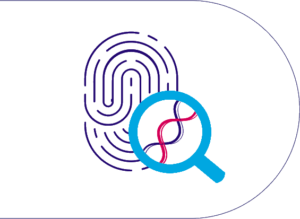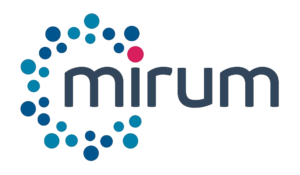Rare genetic diseases of obesity (rare obesity) involve specific genetic mutations that disrupt the normal regulation of hunger, satiety, and energy expenditure, leading to severe early-onset obesity. These conditions are often linked to the MC4R pathway, a critical component in controlling appetite and energy balance. The program aims to identify these underlying genetic factors through extensive testing to enable targeted management strategies and interventions tailored to the unique genetic profiles of affected individuals.

Genetic testing can help you and your patients understand a primary cause of their obesity by identifying relevant genetic variants. This knowledge can inform:
What is the Program?
The Uncovering Rare Obesity program, sponsored by Rhythm Pharmaceuticals, focuses on diagnosing rare genetic diseases of obesity through comprehensive genetic testing. The program targets conditions influenced by genetic variants, particularly in the MC4R pathway, which regulates hunger and energy balance. This testing, conducted at no charge to patients, covers nearly 80 genes related to obesity, providing insights that can help in understanding the root causes of severe obesity and hyperphagia from an early age. This program is beneficial for those showing clinical symptoms or having a history suggestive of these genetic conditions.
Candidates for this test are patients with early onset non-syndromic obesity or patients suspected to have a syndrome with obesity as a predominant feature.
Patients of all ages with severe obesity could be eligible for the Rhythm-sponsored genetic testing program. To be eligible for testing, patients must meet one of the following criteria*:
*Testing available only for patients located in the United States, its territories, and Canada. Select family members of patients who were previously tested may also be eligible for testing.

Download the Test Requisition Form and complete with patient information prior to the appointment if preferred. Collect the patient sample and return both to PreventionGenetics.
Program Information
The Rhythm-sponsored program offers no-cost genetic testing for individuals suspected of having rare genetic diseases of obesity, focusing on early onset and severe forms of the condition.
Eligibility includes children under 18 with a BMI in the 97th percentile or higher, adults over 18 with a BMI of 40 or higher who had childhood obesity, and certain family members of previously tested patients.
The testing covers a comprehensive panel of genes associated with monogenic obesity, including those affecting the leptin-melanocortin signaling pathway, which is crucial in energy balance and appetite regulation.
Interested participants can contact the program via their healthcare provider, who can order the test. The test typically includes the collection of a DNA sample, which is analyzed by PreventionGenetics.
Results provide detailed information about genetic variants that may contribute to obesity, helping to tailor treatment approaches and manage the condition more effectively.
Healthcare providers can order testing kits directly through the program’s website or by contacting the program via phone.

Rhythm is a commercial-stage biopharmaceutical company committed to transforming the lives of patients and their families living with rare neuroendocrine diseases. Rhythm’s lead asset, IMCIVREE® (setmelanotide), an MC4R agonist designed to treat hyperphagia and severe obesity, is approved by the U.S. Food and Drug Administration (FDA) for chronic weight management in adult and pediatric patients 6 years of age and older with monogenic or syndromic obesity due to pro-opiomelanocortin (POMC), proprotein convertase subtilisin/kexin type 1 (PCSK1) or leptin receptor (LEPR) deficiency confirmed by genetic testing, or patients with a clinical diagnosis of Bardet-Biedl syndrome (BBS). Both the European Commission (EC) and the UK’s Medicines & Healthcare Products Regulatory Agency (MHRA) have authorized setmelanotide for the treatment of obesity and the control of hunger associated with genetically confirmed BBS or genetically confirmed loss-of-function biallelic POMC, including PCSK1, deficiency or biallelic LEPR deficiency in adults and children 6 years of age and above. Additionally, Rhythm is advancing a broad clinical development program for setmelanotide in other rare diseases, as well as investigational MC4R agonists LB54640 and RM-718, and a preclinical suite of small molecules for the treatment of congenital hyperinsulinism. Rhythm’s headquarters is in Boston, MA.





